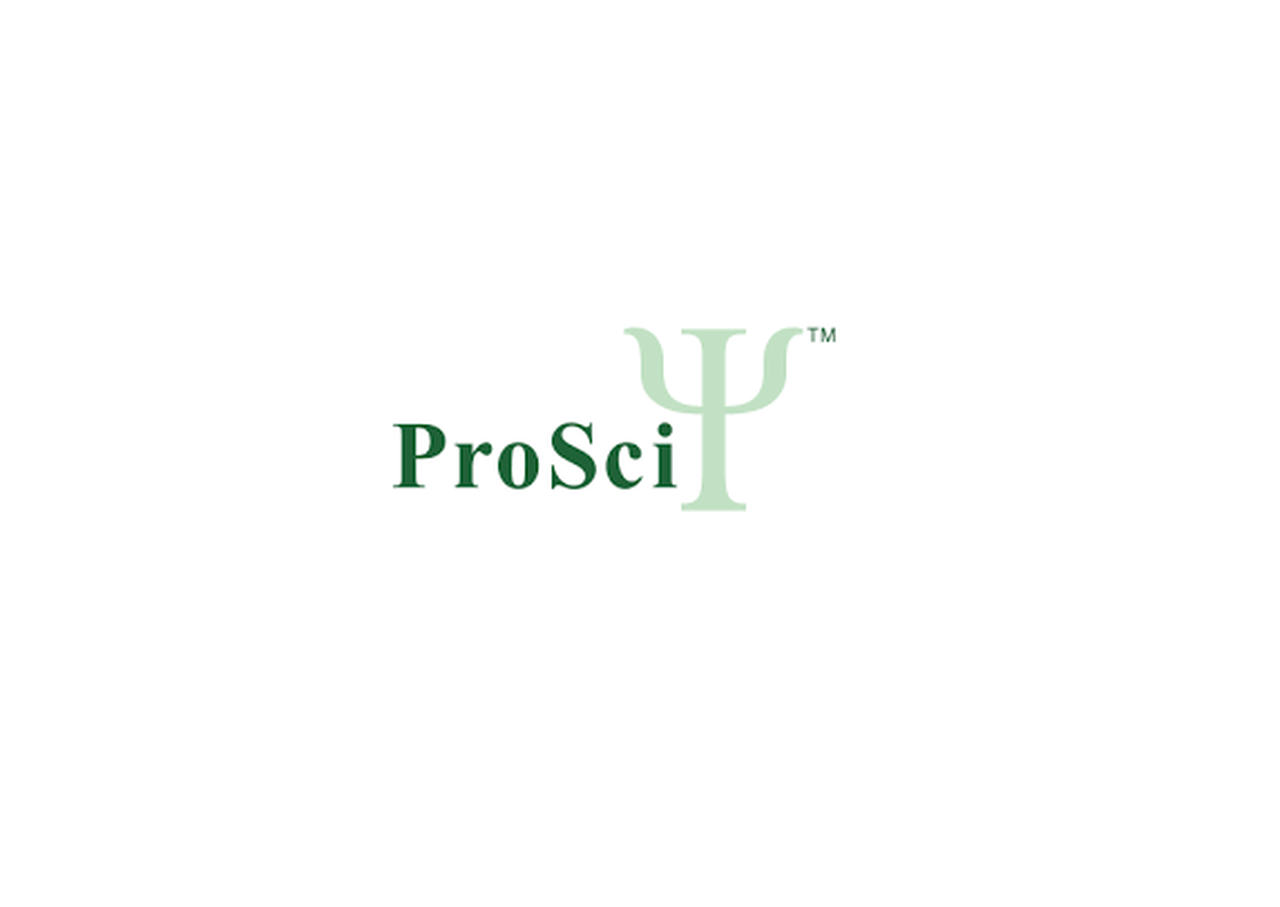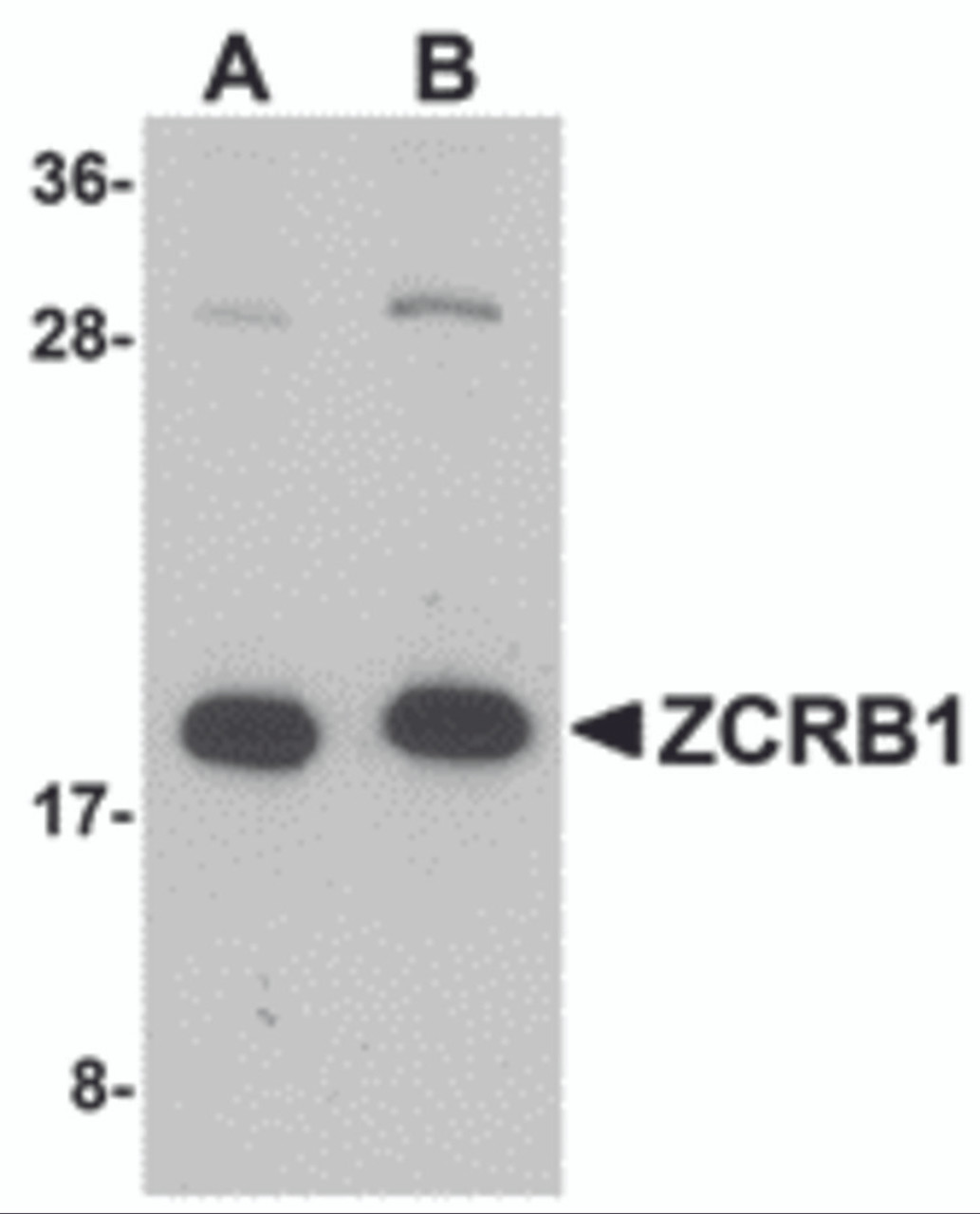Product Description
ZCRB1 Antibody | 5225 | ProSci
Host: Rabbit
Reactivity: Human, Mouse, Rat
Homology: Predicted species reactivity based on immunogen sequence: Bovine: (100%)
Immunogen: ZCRB1 antibody was raised against a 17 amino acid synthetic peptide near the carboxy terminus of human ZCRB1.
The immunogen is located within the last 50 amino acids of ZCRB1.
Research Area: Homeostasis
Tested Application: E, WB
Application: ZCRB1 antibody can be used for detection of ZCRB1 by Western blot at 1 - 2 μg/mL.
Antibody validated: Western Blot in human samples. All other applications and species not yet tested.
Specificiy: N/A
Positive Control 1: Cat. No. 1207 - Raji Cell Lysate
Positive Control 2: N/A
Positive Control 3: N/A
Positive Control 4: N/A
Positive Control 5: N/A
Positive Control 6: N/A
Molecular Weight: N/A
Validation: N/A
Isoform: N/A
Purification: ZCRB1 Antibody is affinity chromatography purified via peptide column.
Clonality: Polyclonal
Clone: N/A
Isotype: IgG
Conjugate: Unconjugated
Physical State: Liquid
Buffer: ZCRB1 Antibody is supplied in PBS containing 0.02% sodium azide.
Concentration: 1 mg/mL
Storage Condition: ZCRB1 antibody can be stored at 4˚C for three months and -20˚C, stable for up to one year. As with all antibodies care should be taken to avoid repeated freeze thaw cycles. Antibodies should not be exposed to prolonged high temperatures.
Alternate Name: ZCRB1 Antibody: MADP1, RBM36, MADP-1, SNRNP31, ZCCHC19, Zinc finger CCHC-type and RNA-binding motif-containing protein 1
User Note: Optimal dilutions for each application to be determined by the researcher.
BACKGROUND: ZCRB1 Antibody: ZCRB1 is a nuclear protein first identified in a differential display screen involving morphine-dependence-related genes. Its expression is increased following morphine treatment and has been observed to be elevated in HepG2 cells. ZCRB1 contains a CCHC-type zing finger RNA-binding motif and can interact with the DBA-binding domain of the stem cell regulator C/EBP transcription factors. ZCRB1 was identified as one of the protein components of U11/U12 snRNPs, which are components of U12-type spliceosome and function as a molecular bridge connecting both ends of the intron, suggesting ZCRB1 may play a key role in U12-type splicing.
 Euro
Euro
 USD
USD
 British Pound
British Pound
 NULL
NULL










